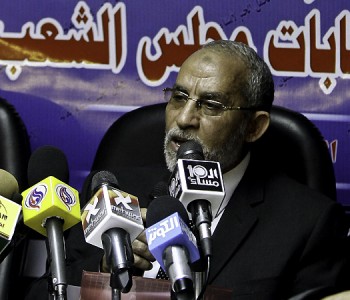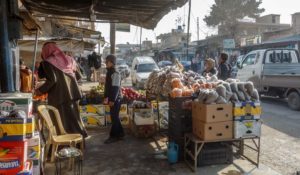
Oct 15 2010
Opposition says new measure on mobile text messages will curtail their ability to mobilise voters for November poll.
Under the new rules, the Muslim Brotherhood will not be able to use text messages to rally voters.
Egypt’s telecommunications regulator has imposed new restrictions on mobile text messages ahead of legislative elections.
Mahmoud el-Gweini, adviser to Egypt’s telecommunications minister, said on Tuesday that companies sending out text messages en masse – known as SMS aggregators – must now obtain licenses.
Opposition activists say the new regulation stifles their ability to mobilise voters.
Reform groups in Egypt have come to rely increasingly on the internet and mobile phones to organise and mobilise their supporters, tools which have enabled them to sidestep government harassment.
The Muslim Brotherhood, a well-established but technically outlawed Islamist party, used text messages as a campaign tool for its candidates in the elections five years ago. The party surprised the government in 2005 by winning 20 per cent of parliament seats.
El-Gweini said the decision was not supposed to curb political activity, but rather to protect people from “random” text messages about sensitive issues.
“People can misuse the tools in the hands of the 60 million and send the wrong messages for one reason or another,” he said.
“We are not making life difficult. We are making life organised, that is all.”
Only registered political parties can apply to use mass text messages in the upcoming elections. The ruling party has already been granted a permit, he said.
However, the Muslim Brotherhood – whose candidates have been allowed to run as independents in the November election but is not an officially licensed political party – will not be able to use them.
The Egyptian political sphere is tightly controlled, and a government-run committee decides who can form parties.
Many of the country’s most active opposition groups have no such license.
Moustafa el-Naggar, a member of a new reform movement led by Nobel Prize winner Mohamed ElBaradei, said his group was contemplating using mass text messages to mobilise its members.
“They are trying to strip the opposition of all its tools. But we will find new ones,” he said.
Some journalists say the government is tightening its grip on media freedoms.
“The independent media succeeded in exposing many violations during the elections in 2005, [but] we have this feeling that we will not be allowed to do the same coverage this year,” Noha el-Hennawy, an Egyptian journalist, told Al Jazeera.
Satire as resistance
Given the restrictive political climate, younger generations often use satire to vent their frustration.
Some of most popular books include “Captain Egypt: a Satirical Album for Teenagers”, which plays on the challenges facing the young, and “There must be a solution”, which shows a dishevelled Egyptian leaning against a rubbish bin on its cover.
Topics like religion, the president’s 30-year-rule and economic inequality provide ready material for a growing amount of satirical literature.
“The more of a totalitarian rulership you have, the more oppression, the more satire you have,” Rabie Moftah, a literary critic, said. “It is a form of resistance.”
In his book “Oh…Egypt! A Satirical Vision,” author Nabil Farouk writes: “Even children take part in the Intifada of internal resistance, by ripping a seat on a public bus, or scratching a luxury car on the street.”






